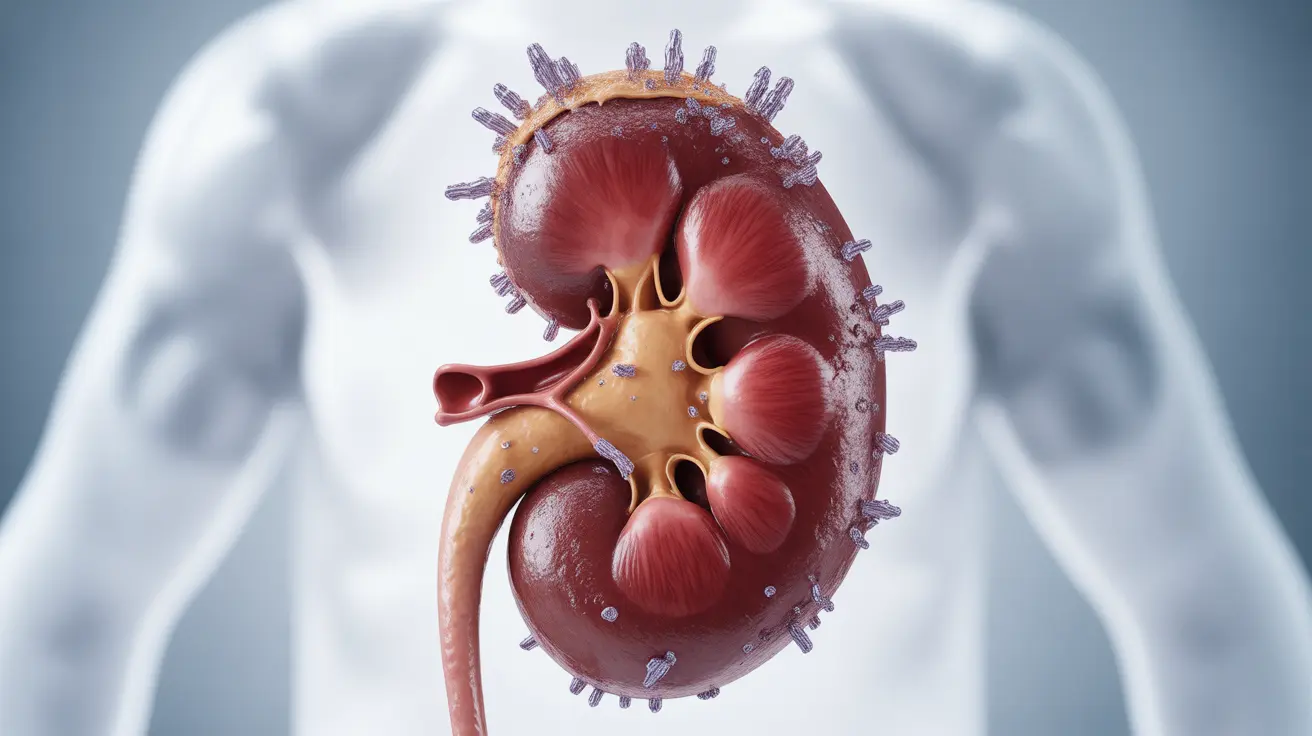The relationship between gout and kidney disease represents a complex medical connection that affects millions of people worldwide. These two conditions can significantly impact each other, creating challenges for both diagnosis and treatment. Understanding how they interact is crucial for effective management and prevention of complications.
In this comprehensive guide, we'll explore the intricate relationship between gout and kidney disease, examining how they influence each other and discussing effective management strategies for people affected by both conditions.
The Connection Between Gout and Kidney Disease
Gout and kidney disease share a bidirectional relationship, meaning each condition can influence the development and progression of the other. When kidneys don't function properly, they struggle to remove excess uric acid from the blood, potentially leading to gout. Conversely, persistent high uric acid levels associated with gout can contribute to kidney damage over time.
How Kidney Disease Affects Gout Risk
Kidney disease can significantly increase the risk of developing gout through several mechanisms:
- Reduced uric acid excretion
- Altered pH levels in the body
- Decreased kidney function leading to uric acid buildup
- Complications from certain medications used to treat kidney disease
Impact of Gout on Kidney Health
Chronic gout can affect kidney function in various ways:
- Formation of uric acid crystals in the kidneys
- Development of kidney stones
- Inflammation in kidney tissue
- Progressive damage to kidney structures
Symptoms and Diagnosis
Recognizing symptoms of both conditions is crucial for early intervention and effective treatment. Symptoms may include:
- Intense joint pain and swelling
- Decreased urine output
- Fluid retention
- Fatigue and weakness
- Changes in urination patterns
Diagnostic Approaches
Healthcare providers typically use multiple methods to diagnose and monitor both conditions:
- Blood tests for uric acid levels
- Kidney function tests
- Joint fluid analysis
- Imaging studies
- Regular monitoring of both conditions
Treatment Strategies and Management
Managing both gout and kidney disease requires a carefully balanced approach. Treatment plans must consider the impact of medications on both conditions while maintaining effective control of symptoms.
Medication Considerations
Several medications can be used, but dosing may need adjustment based on kidney function:
- Anti-inflammatory drugs (with careful monitoring)
- Uric acid-lowering medications
- Medications for kidney disease management
- Pain management options
Lifestyle Modifications
Lifestyle changes play a crucial role in managing both conditions:
- Following a specialized diet low in purines
- Maintaining healthy hydration levels
- Regular physical activity as tolerated
- Weight management
- Avoiding trigger foods
Prevention and Long-term Care
Preventing complications requires ongoing attention to both conditions through:
- Regular medical check-ups
- Monitoring of uric acid levels
- Kidney function assessments
- Dietary compliance
- Medication adherence
Frequently Asked Questions
- How are gout and kidney disease connected, and can one cause the other?
Gout and kidney disease have a bidirectional relationship. Kidney disease can lead to gout by reducing the body's ability to remove uric acid, while chronic gout can damage the kidneys through crystal formation and inflammation. Each condition can potentially trigger or worsen the other.
- What foods and lifestyle habits can help reduce the risk of both gout and kidney disease?
A low-purine diet, limited alcohol consumption, adequate hydration, and regular exercise can help manage both conditions. Avoiding processed foods, maintaining a healthy weight, and limiting salt intake are also beneficial. Following a diet plan approved by healthcare providers is essential.
- What are the symptoms of gout in people with kidney disease, and how is it diagnosed?
Symptoms include severe joint pain, swelling, redness, and limited range of motion. Diagnosis involves blood tests for uric acid levels, kidney function tests, joint fluid analysis, and imaging studies. People with kidney disease may experience more frequent or severe gout attacks.
- Which medications are used to treat gout flare-ups and lower uric acid if I also have kidney problems?
Treatment options include adjusted doses of anti-inflammatory medications, carefully monitored uric acid-lowering drugs, and pain management medications suitable for compromised kidney function. All medications must be prescribed with consideration for kidney status.
- Can managing gout help slow the progression of kidney damage, and what monitoring is needed?
Yes, effective gout management can help protect kidney function. Regular monitoring includes uric acid level checks, kidney function tests, and assessment of medication effectiveness. Working closely with healthcare providers ensures appropriate adjustment of treatment plans as needed.




